
OR
Cover Story
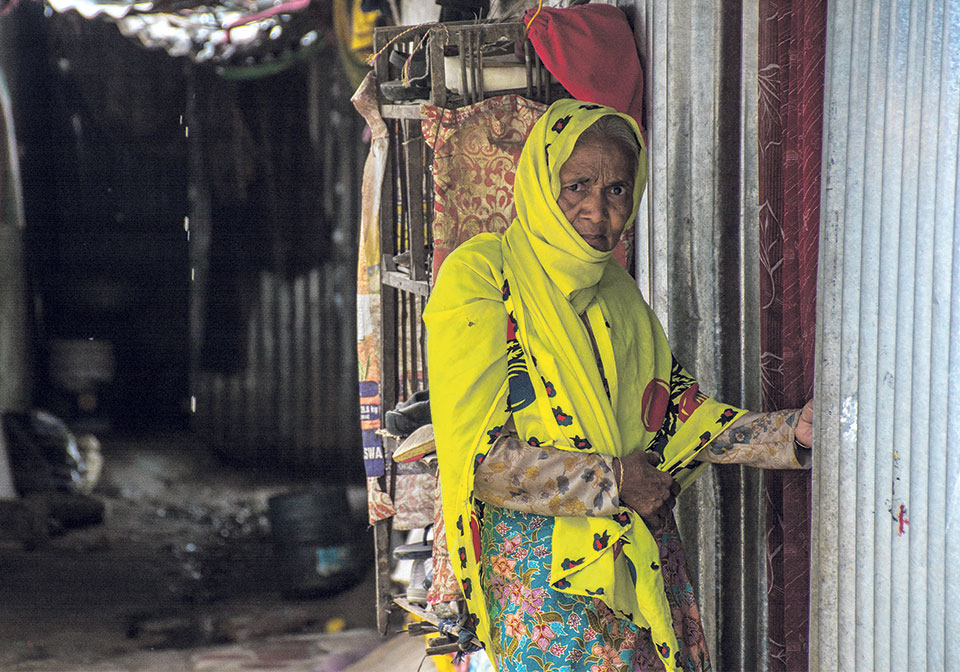
Holding on
As the persecution of Rohingya Muslims in Myanmar continues, many have fled from their homes and are now refugees in neighboring countries. These people have been separated from their families and many have lost their loved ones too. Though it might be difficult to imagine them celebrating the holy month of Ramadan, turns out this is one aspect of their culture that they desperately want to hold on to, to preserve what little is left of their identities. 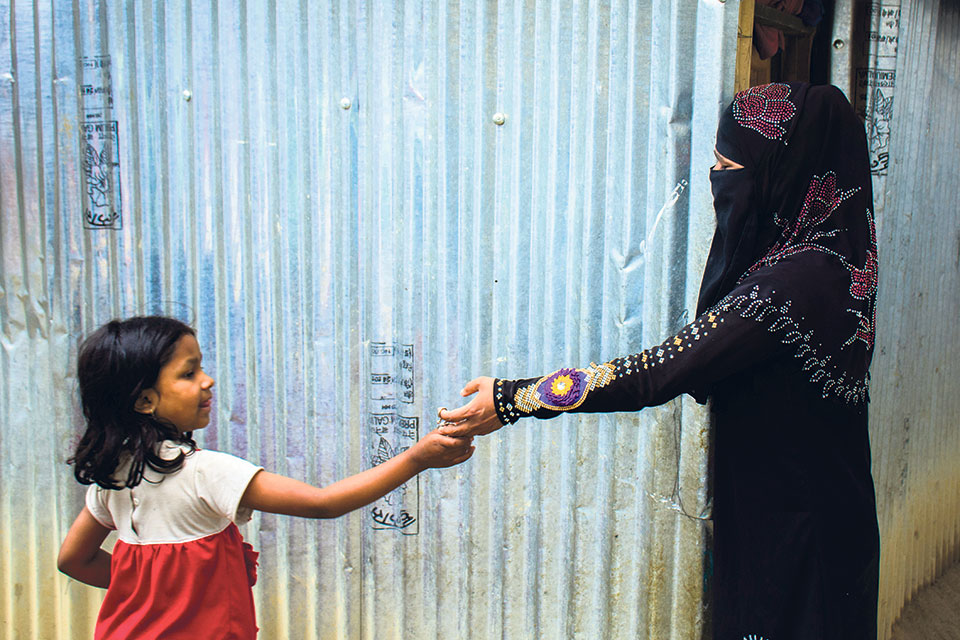
Mohammad Asis, a 35-year-old Rohingya refugee, says his deeply scared hand reminds him of the wounds that time can never heal. He remembers the night when a fellow-citizen tried to slash his head with a sharp, glistening sword. It is this memory that haunts him every day along with the fact that he doesn’t know if he will ever get to go back home as the world at large continues to look the other way, thinking it’s not their problem.
His story is the story of many Rohingya Muslims back in Myanmar. The terrible genocide and violence that started in 2012 have compelled many Muslims to abandon their homes and escape to neighboring countries in search of refuge. However, life is not easy for them even after escaping the deadly persecution back home. Asis himself took a precarious path from Bangladesh to India and finally to Nepal in order to find a safe place to live with his family.
Right now, there are about 330 Rohingya refugees at Kapan that is in the outskirts of Kathmandu and they live in hastily constructed huts with tin roofs. In the month of Ramadan (that falls from May 16 to June 14 this year), this settlement looks very much at grief. The eyes of the refugees look haunted and many can be seen crying as they offer Namaz, praying for the wellbeing of their families and their hometowns.
“They have burnt down our homes, distributed our lands to others, and killed our people,” says Asis adding that thoughts of his sisters, who were separated from him during the war, plague him every minute and he misses them terribly. And, to make matters worse, he is unsure if his sisters are even alive. He remembers the time when the month of Ramadan was celebrated with great enthusiasm back home. But now such celebrations are not only difficult, but are actually next to impossible.
Asis escaped from his home at 3:00 am one night with his wife, parents, and children and reached Bangladesh. His sisters could not join him and he talks about crossing the border with no certainty of his life and about his children’s futures either.
However, for many Rohingya children living in Kapan this month of Ramadan (even when they away from home) is an exciting one. They seem fascinated with the prayers and insist on eating good food before every sunrise and after every sunset. But for their parents, this festive season is more like a burden that comes back to pick at their wounds every year.
The leader of this community, who did not want to be named, says this festival comes with a lot of responsibility. According to him, the month of Ramadan is not very cheap. Back home, they used to spend thousands of rupees during this festival. Unfortunately now, as refugees, they are left with no resources to spend as lavishly as they once did. And this pains them all.
Not being able to feed his children and many others at the camp during this festival is hurtful, says the leader. And it’s also disheartening to see his children forced to celebrate Ramadan in compromised ways and thus not being able to enjoy the essence of the festival in the same way that he did during his childhood.
“In Myanmar, I had about ten huge rooms where I used to store the harvested paddy grains. Most of us had farms, cattle and helpers. But here, getting to eat some meat even during Eid sounds like a dream,” he says.
A 70-year-old lady, who sat distressed at the corner of her room as the rain poured and wet most of her room’s floor, said that never in her life had she imagined that she would have to leave her country, and then be forced to live in such a pitiable state.
She was born in Rakhine, a state near the Bangladesh border in Myanmar. That was also where she raised her children and grandchildren. But now she does not even know where most of her children and grandchildren are. She starts her fast every morning just by having salt and water due to the scarcity of food. Even in the evening, while ending her fast, most of the times, she does not have sufficient food to eat.
“I’m happy with whatever little I have got. But I pray to god that my children are able to celebrate Eid in a much better way than I have been able to in the last four years,” she says.
Another refugee, Ahmed Ansari, (name changed) says that he almost feels like a beggar here. As an unregistered refugee in Nepal and other parts of South Asia, they are often compelled to beg for food, employment and sometimes even for water. It’s difficult for them to complete their higher education, get a job, or even rent a flat. Many of their friends are stuck in jails of India and Bhutan.
“Even when we have everything back home, it feels like we actually have nothing in life,” adds Ansari. In the year 2013, he smuggled himself out of the Myanmar border, paying about 100,000 Nepali rupees. So, this Ramadan, as in every Ramadan since then, he is praying for every soul who lost his/her life just because they did not have the money to pay the border mafias.
While some refugees seemed distressed during this season of Ramadan, the younger ones looked content, having accepted their new lives. Whatever situation they may be in, they are trying to have fun and make the most of what they have got. At least that’s what many confessed to be doing.
19-year-old Mohammad Mansoor says that he misses going to school and he misses his friends. But he has also started enjoying his new life in Nepal. Finding a job might be tough but it’s not impossible. “I don’t know where my mother and my sister are. But for how long can I be sad? I’m sure I will get in touch with them one day,” he says.
Mansoor is also glad of the fact that they have started living happily as a community. According to him, slowly but steadily, everything is falling into place. This year, they also made a prayer room for themselves where they could get together. Previously, during Ramadan, all of them used to go to the Jame Masjid near Ghantaghar every Friday to offer their prayers. Now they live as a community and pray together five times a day.
Another 18-year-old boy, Nazir Hussain, (name changed) reads the news everyday on his phone. Looking at the photos of his hometown where many boys and men are being assassinated and girls are being raped, he realizes it might be a long time before he can return home and seems to have accepted that, however difficult it might be.
“I know I have no other option but to accept the situation I’m in,” he says adding that he remembers eating delicious biryani, ‘sewai’, a sweet vermicelli dish, and meat when he was home during this season. However, since he can’t afford vegetables and meat here in Nepal, indulging in a single good meal has been difficult. Yet he is trying to make do with whatever he has, at times even going out of his way and sharing what little he can get his hands on with the occasional visitor. “This is our culture and our identity and we will take it with us where ever we go and celebrate it in times of crisis as well. This is the one thing no one can take away from us,” he concludes.
swasti30@gmail.com
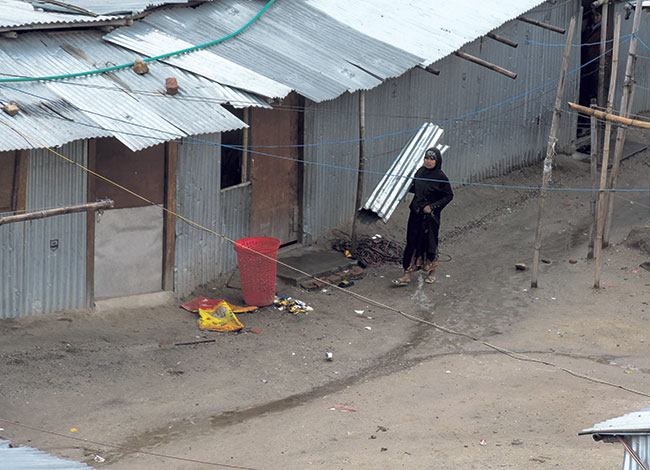
You May Like This
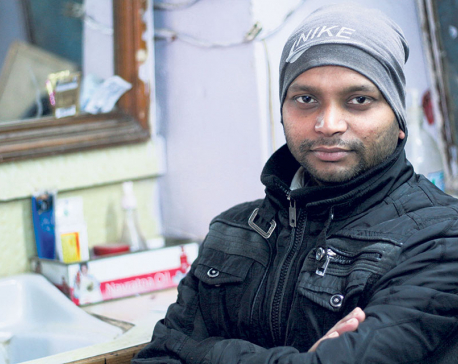
Souls of My City: Home away from home
“Everybody here is so friendly that it feels like home,” says Sanjay Thakur. He is a 28-year-old barber from Bihar,... Read More...
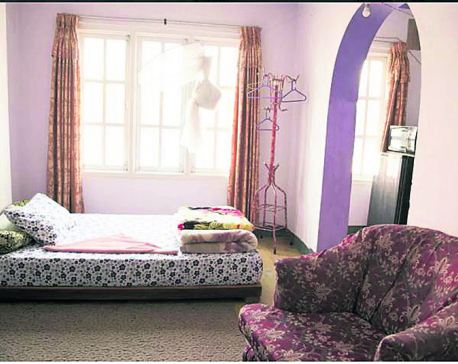
A home away from home
We all know how difficult it is to find hotel rooms that won’t take a chunk of our vacation budget... Read More...

A Home Away from Home
As far back as I can remember, whenever my semester report card came out, I would always proudly show it... Read More...




Just In
- MoHP cautions docs working in govt hospitals not to work in private ones
- Over 400,000 tourists visited Mustang by road last year
- 19 hydropower projects to be showcased at investment summit
- Global oil and gold prices surge as Israel retaliates against Iran
- Sajha Yatayat cancels CEO appointment process for lack of candidates
- Govt padlocks Nepal Scouts’ property illegally occupied by NC lawmaker Deepak Khadka
- FWEAN meets with President Paudel to solicit support for women entrepreneurship
- Koshi provincial assembly passes resolution motion calling for special session by majority votes







_20220508065243.jpg)






Leave A Comment